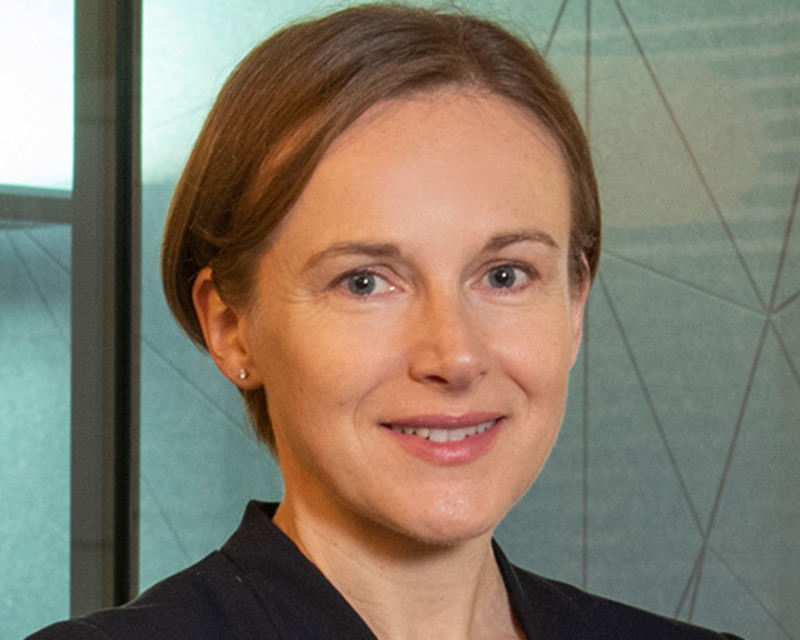

SI Dilemma: Weighing up double materiality in the chemicals industry
Evaluating investments through a double materiality lens is a challenge that SI analysts face every day. This involves considering the impacts that companies have on the world, and the impact that ESG factors have on the company. For industries such as chemicals, this poses particular difficulties in weighing up complex and potentially opposing impacts. Public opinion about chemicals science and their suitability for general use is also evolving, making investing in this sector a tough choice.
まとめ
- Chemicals producers are both essential for society and a threat to it
- The SDGs can be used to assess positive and negative contributions
- Companies phasing out hazardous chemicals will be positively impacted
Chemicals are essential to produce everyday items, from food, clean water and health care products, to housing, clothing and much more. In recent years, however, we only seem to hear about the negative impacts of chemical products, such as the polluting effect of ‘forever chemicals’ like per- and polyfluoroalkyl substances (PFAS) and single-use plastics, or the biodiversity impact of pesticides.
Even the UN recognises that “a substantial use of chemicals is essential to meet the social and economic goals of the world community”. Yet we have now reached the point where the planetary boundaries for novel entities have been exceeded – meaning that we now create more chemicals than our planet can deal with.
The dilemma is that many useful chemicals have properties that are hazardous to the environment and human health, and our use of these products over the last century has outpaced our understanding of their impacts. Over 350,000 synthetic chemicals have been developed, and their production is expected to triple by 2050.
Governments around the world now recognize that more regulation is needed to manage chemicals and hazardous chemical waste, and this will have significant financial impacts for the companies producing and using them.
Biggest shake-up for decades
The EU’s Chemicals Strategy for Sustainability published in 2020 is considered the biggest shake up of the chemicals industry for decades. It is part of the European Green Deal, a package of cross-sectoral policy initiatives targeting a green transition and carbon neutrality by 2050. Among the goals are:
Banning the most harmful chemicals in consumer products and phasing out PFAS
Enhancing risk assessments by accounting for the cocktail effect of chemicals
Establishing a simpler ‘one substance, one assessment’ process
Promoting resilience in the supply and sustainability of critical chemicals
Raising standards globally and only investing in chemicals that are safe and sustainable.
The strategy will impact one-third of the chemicals in common use, affecting everyday items such as cleaning products, cosmetics, paints and plastics. Market estimates suggest products worth around EUR 70 billion in revenue, or about 12% of the European chemicals market, will be banned by 2040, while others will be reformulated or more stringently regulated.
The sustainability lens
At Robeco, when evaluating the sustainability impact of a companies, we first focus on the inherent impact of its products on the Sustainable Development Goals (SDGs), and then secondly on the impact of its operations, in keeping with the EU sustainability taxonomy.
We consider chemicals that make a direct positive contribution to the SDGs positively, such as those facilitating renewable energy, clean water, medicines and access to nutritious food. We also support safer alternatives to hazardous substances currently in use, such as sustainable agriculture or products containing recycled and recyclable materials. Chemical products that contain substances of high concern are viewed negatively.
What makes the assessment complex is the sometimes conflicting impacts, such as the use of fertilisers to increase food production. This can have a positive impact on reducing hunger, but the excessive use of fertilisers can be damaging to biodiversity.
And while bio-based chemical feedstocks may reduce climate-related emissions, they can negatively impact biodiversity – an effect known as ‘burden shifting.’ A holistic view of all impacts is needed to minimise this effect and avoid causing significant harm, an approach that we take in our SDG Framework.
最新のインサイトを受け取る
投資に関する最新情報や専門家の分析を盛り込んだニュースレター(英文)を定期的にお届けします。
Research helps mitigate risks
An additional complication is the imperfect understanding of the true impacts of chemicals. The cautionary tale of PFAS illustrates unintended consequences. PFAS have been widely used in household products such as stain repellents, paints and coatings since the 1940s, enhancing desirable water-repellent properties and extending the useful lifespans of other products.
While initially thought to be harmless, we now know that their use over many decades has led to a build-up of PFAS in the environment. The impact of this and the threats to human and animal health are still being discovered. As analysts we know that unintended consequences cannot always be avoided. We can try to minimise their impact by keeping up to date on the science, and regularly checking that our evaluation frameworks reflect the latest knowledge.
We also align with leading industries bodies such as the Chemsec Investor Initiative on Hazardous Chemicals (IIHC) which encourages producers to increase their transparency and stop the production of persistent chemicals such as PFAS. About 50 institutional investors including Robeco, with a collective USD 10 trillion in assets under management, belong to this initiative.
The financial lens
Financial and sustainability materiality are two sides of the same coin. Understanding the impacts that a company has is key to understanding how this will affect their future growth, profitability and risk. When evaluating chemical companies, we focus on product impacts and stewardship, climate strategy, and operational eco-efficiency – particularly in hazardous waste management and corporate governance.
We view positively the companies that have already started to phase out hazardous chemicals, that are working on safer alternatives, and that have good management of their operational impacts. These are the companies that stand to benefit from changes in the industry and market demand, a trend that is driven by more consumer-facing companies.
We also look for good governance and transparency, which helps us to mitigate the risk of future problems. Companies that are lagging in adapting to the changing market are likely to face higher adaptation costs in future, as well as loss of market share.
Bringing it all together
The extent to which the dual materiality perspectives influence our investment decisions ultimately lies with the portfolio manager at Robeco. SI analysts identify the potential sustainability and financial impacts and try to estimate the likely magnitude and time frame, but they don’t try to assign weights to sustainability versus financial impacts.
Instead, each strategy’s investment approach drives the final decision, with some hard constraints where necessary, to ensure that no companies causing significant harm end up in our most sustainable funds. It’s not easy work – sustainable investing isn’t a ‘silver bullet’ – but we’re glad that we do it to drive greater sustainability in contentious industries such as chemicals.
重要事項
当資料は情報提供を目的として、Robeco Institutional Asset Management B.V.が作成した英文資料、もしくはその英文資料をロベコ・ジャパン株式会社が翻訳したものです。資料中の個別の金融商品の売買の勧誘や推奨等を目的とするものではありません。記載された情報は十分信頼できるものであると考えておりますが、その正確性、完全性を保証するものではありません。意見や見通しはあくまで作成日における弊社の判断に基づくものであり、今後予告なしに変更されることがあります。運用状況、市場動向、意見等は、過去の一時点あるいは過去の一定期間についてのものであり、過去の実績は将来の運用成果を保証または示唆するものではありません。また、記載された投資方針・戦略等は全ての投資家の皆様に適合するとは限りません。当資料は法律、税務、会計面での助言の提供を意図するものではありません。 ご契約に際しては、必要に応じ専門家にご相談の上、最終的なご判断はお客様ご自身でなさるようお願い致します。 運用を行う資産の評価額は、組入有価証券等の価格、金融市場の相場や金利等の変動、及び組入有価証券の発行体の財務状況による信用力等の影響を受けて変動します。また、外貨建資産に投資する場合は為替変動の影響も受けます。運用によって生じた損益は、全て投資家の皆様に帰属します。したがって投資元本や一定の運用成果が保証されているものではなく、投資元本を上回る損失を被ることがあります。弊社が行う金融商品取引業に係る手数料または報酬は、締結される契約の種類や契約資産額により異なるため、当資料において記載せず別途ご提示させて頂く場合があります。具体的な手数料または報酬の金額・計算方法につきましては弊社担当者へお問合せください。 当資料及び記載されている情報、商品に関する権利は弊社に帰属します。したがって、弊社の書面による同意なくしてその全部もしくは一部を複製またはその他の方法で配布することはご遠慮ください。 商号等: ロベコ・ジャパン株式会社 金融商品取引業者 関東財務局長(金商)第2780号 加入協会: 一般社団法人 日本投資顧問業協会
























